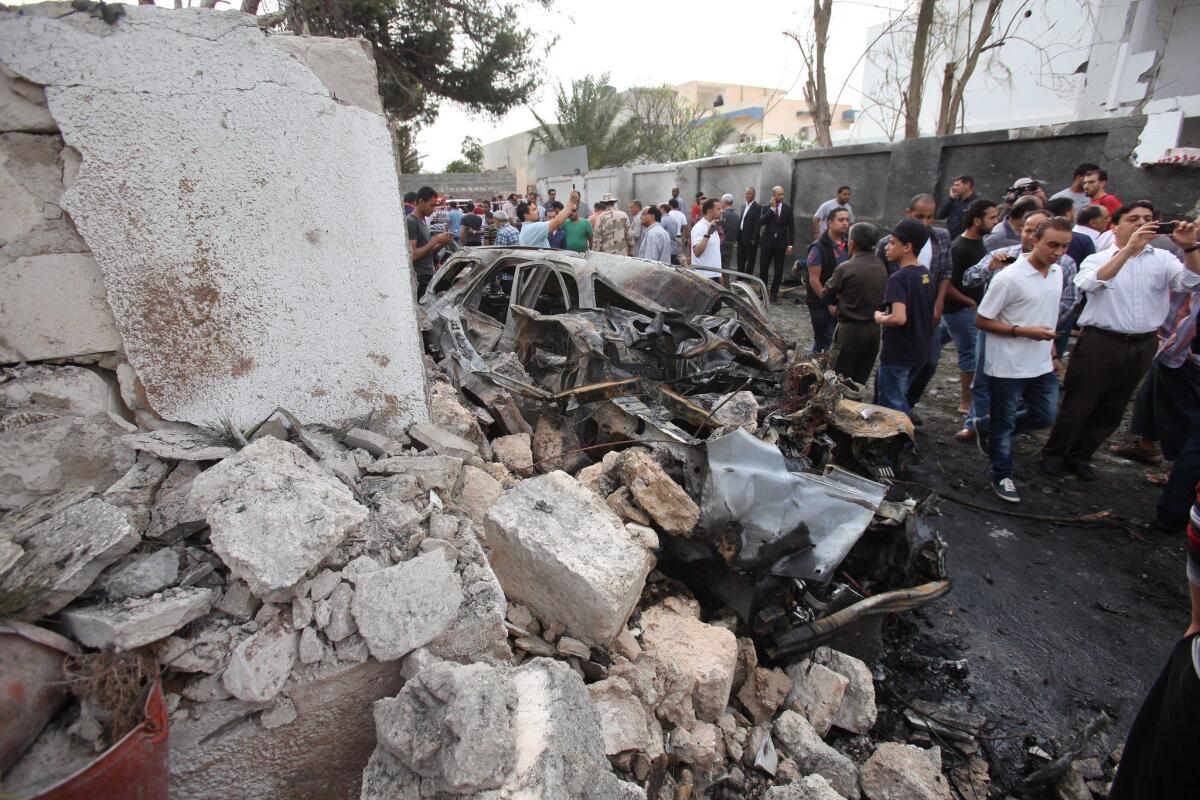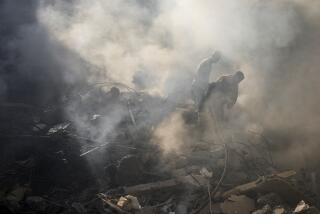Car bomb explodes at French Embassy in Libya

CAIRO -- A car bomb exploded at the French Embassy in Tripoli, Libya, on Tuesday, injuring three people and raising the specter that Islamist militants were seeking retribution for France’s military strikes against extremists in the West African nation of Mali.
The bombing was the latest indication of the dangers facing a volatile Libya after the overthrow and death of Moammar Kadafi in 2011. The attack was the most potent against a foreign installation in the country since last year’s assault on the U.S. Consulate in Benghazi, which killed four Americans, including Ambassador J. Christopher Stevens.
No one claimed immediate responsibility for Tuesday’s blast, which set nearby cars ablaze and injured two embassy guards and a Libyan girl. But Al Qaeda in the Islamic Maghreb has threatened in recent weeks to target France and other nations for their intervention in the war against rebels and extremists in Mali.
Militant groups have been exploiting Libya’s security vacuum, sneaking through porous borders and relying on looted stockpiles of weapons. Rising extremist activity across the deserts of western and northern Africa has concerned the United States and Europe since popular uprisings two years ago changed the politics of Libya, Egypt and Tunisia.
French President Francois Hollande said the attack was aimed at “all countries in the international community engaged in fighting terrorism.” He added: “France expects the Libyan authorities to shed the fullest light on this unacceptable act, so that the perpetrators are identified and brought to justice.”
Most Libyans praise the French for NATO-led airstrikes that weakened Kadafi’s army and led to his downfall. Others are more suspicious, suggesting that France and other Western powers are angling to capitalize on Libya’s vast oil reserves. These sentiments are playing out in a nation shaken by assassinations, kidnappings, tribal disputes and recent attacks on churches.
Libya’s central problem is a lack of security. While the army is being rebuilt, the country is relying on tribes and militias, many with their own agendas, to keep order across deserts and a vast coastline.
ALSO:
France lawmakers approve gay marriage
Israel accuses Syria of using chemical weapons against rebels
Analysts surprised by alleged Al Qaeda in Iran tie in Canada plot
More to Read
Sign up for Essential California
The most important California stories and recommendations in your inbox every morning.
You may occasionally receive promotional content from the Los Angeles Times.











